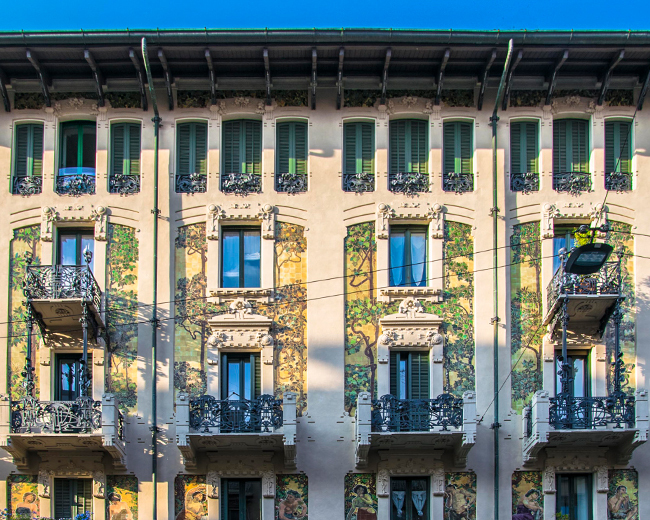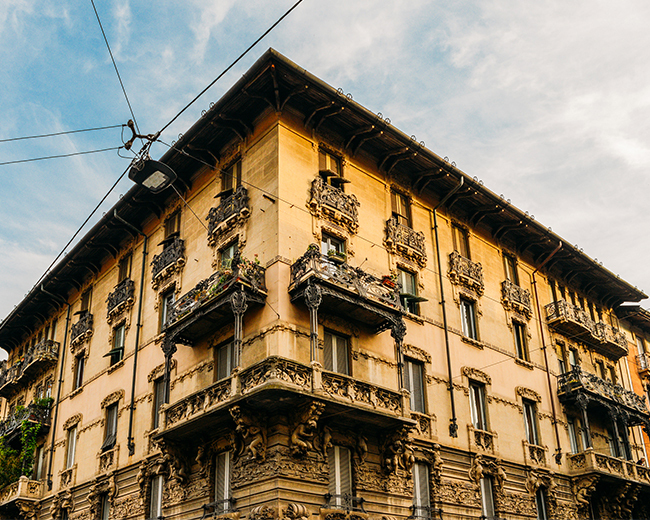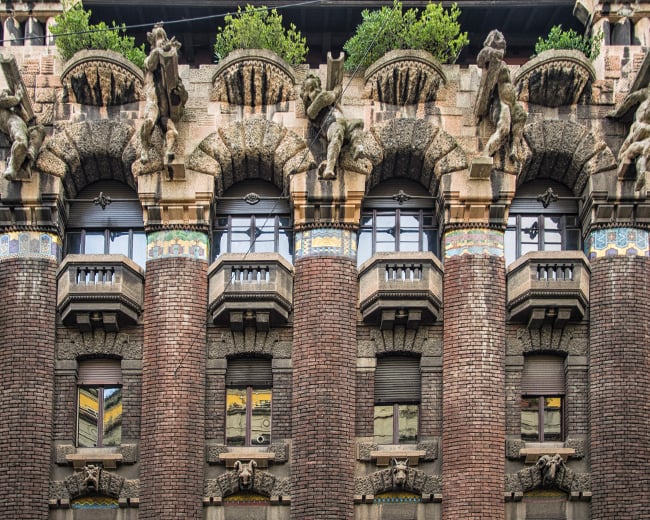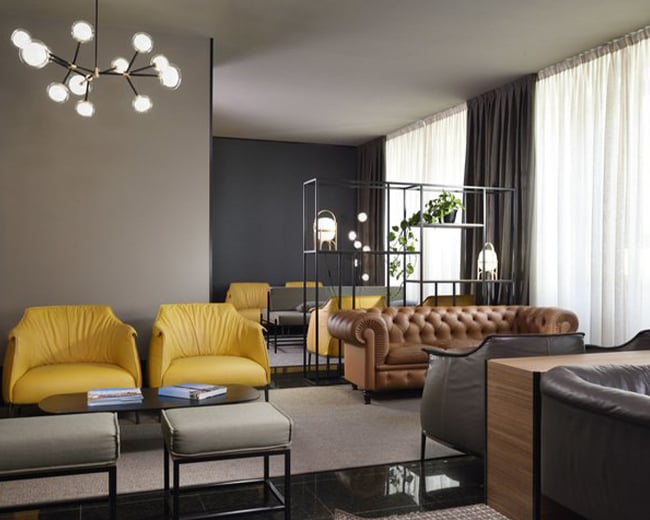Floral decorations, slender shapes, tiles and wrought iron... Come with us to discover Art Nouveau Milan
9 Feb 2021
Gruppo UNA
The Art Nouveau style thrived in Milanese architecture, as we may see from the rich, precious wrought iron and tile decorations on buildings in the area around Porta Venezia, Milan’s Art Nouveau quarter par excellence. In Art Nouveau, floral embellishments combine with slender, agile forms, elaborate monumentality and bold plasticity on facades. Come with us on a stroll through town to discover some of Milan’s most famous liberty buildings.
Casa Galimberti - Via Marcello Malpighi, 3
With its magnificently sinuous and colourful elegance, Casa Galimberti is one of the most original examples of Milanese liberty style, featuring wrought iron, floral motifs in cement and, above all, realistic representations on its ceramic tile cladding. The facade’s majolica decoration features typical art nouveau colours and designs, concrete floral friezes, and wrought iron balconies.

Casa Guazzoni - Via Marcello Malpighi, 12
Designed by Giovan Battista Bossi, this building was erected in 1906 in Art Nouveau style, with cement and iron used for its structure and decoration. The balconies and window openings become more airy as the building rises; the same applies to the decorative cladding, which is at its most intense on the ground and first floors, and simpler the higher the building reaches. The dense interweave of playful putti with fluttering smiles is a fine example of a private construction that combines functionality with aesthetics.

Former Cinema Dumont – Via Paolo Frisi, 2-6
The former Dumont cinema is located immediately outside the Spanish Walls, near Porta Orientale, just east of Lazzaretto. Built in 1908-1910, the main facade of the Dumont Cinema is adorned with Art Nouveau floral decoration. The building was used as a cinema until 1932. Today, it is home to the Biblioteca Civica di Porta Venezia. Over the years, it came perilously close to being demolished. Those threats ended in 1977, when the Superintendence of Cultural and Environmental Heritage gave its facade protected status.
Casa Campanini and Casa Tensi – Via Vincenzo Bellini, 11 and Via Vivaio, 4
This building is of prime importance to Milanese Art Nouveau history. Built by architect Alfredo Campanini between 1904 and 1906, its most striking features are the huge statues at the entrance, and its wrought iron decorations. Casa Tensi is another fine example of Art Nouveau style. Here, instead of sharp angles, at its corners the building sports balconies with stained glass windows; even the window surrounds are rounded, while the facade is a feast of floral and wrought iron embellishment.
Casa Berri-Meregalli - Via Cappuccini, 8
After pure liberty, building fashions moved on to cross-pollination with other styles, most notably eclecticism. Perhaps the most famous design of this type in Milan is Palazzo Berri-Meregalli, conceived and built by Giulio Arata between 1911 and 1915, combining a number of styles: the building’s rough ashlar and vertical development reference neo-gothic architecture, the interior is decorated with mosaics redolent of Byzantine architecture, while the Mazzucotelli wrought iron and the statues of various animals reference themes from Art Nouveau.

Where to stay in Milan
The only thing missing from this Milan Art Nouveau tour is the ideal place to stay. Now’s the time to choose one of the various options that the Gruppo UNA offers. We start with Maison Milano | UNA Esperienze, located in a privileged central position in the heart of Milan, in an exquisitely-restored historic building, rich in detail and Italian charm. Alternatively, you could go for UNAHOTELS Century Milano, an ideal place for enjoying the social whirl that Milan has to offer. From April 2021, you’ll be able to stay at Milano Verticale | UNA Esperienze, an all-in-one 4*S urban hotel that’s also a gourmet destination, great place for an aperitif, business venue and a ground-breaking hub for successful events.

